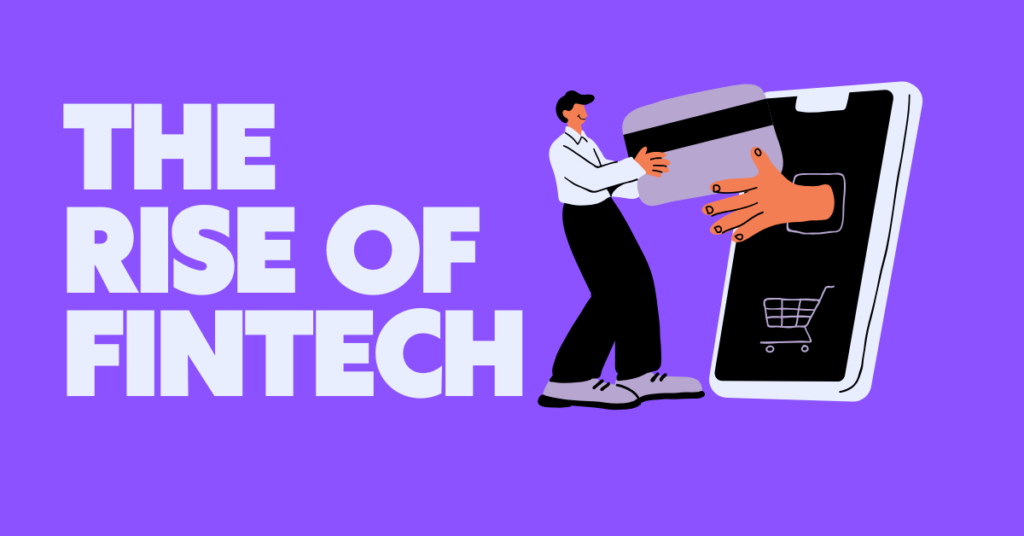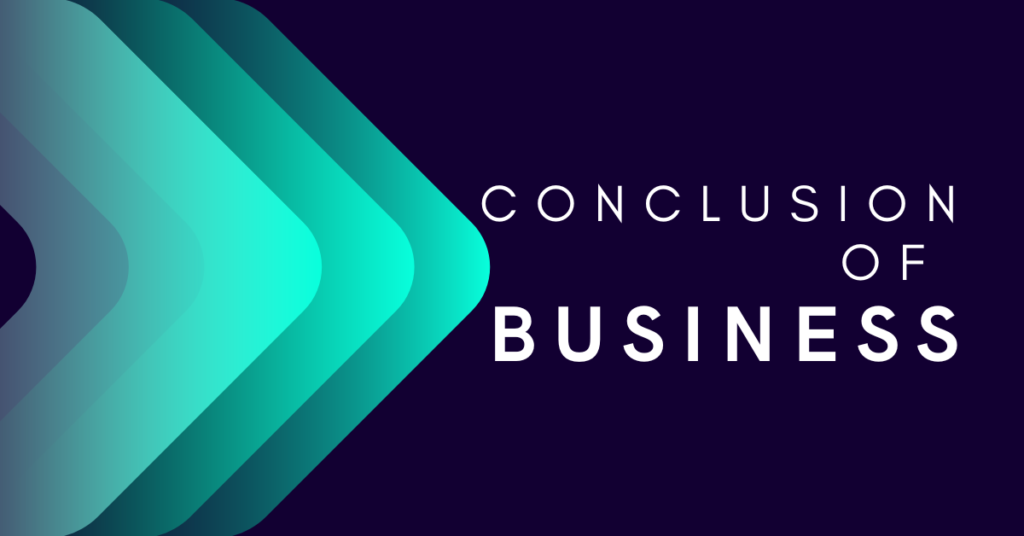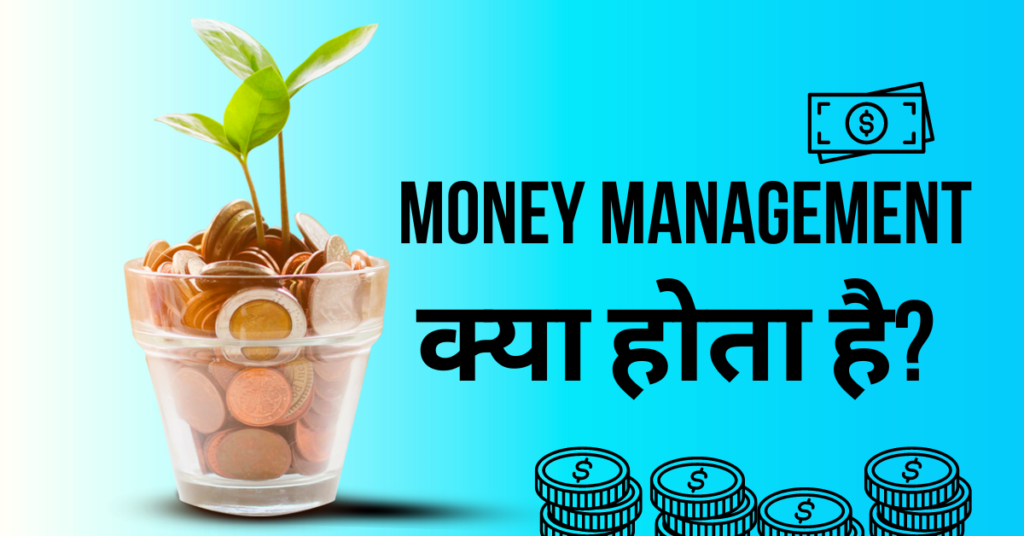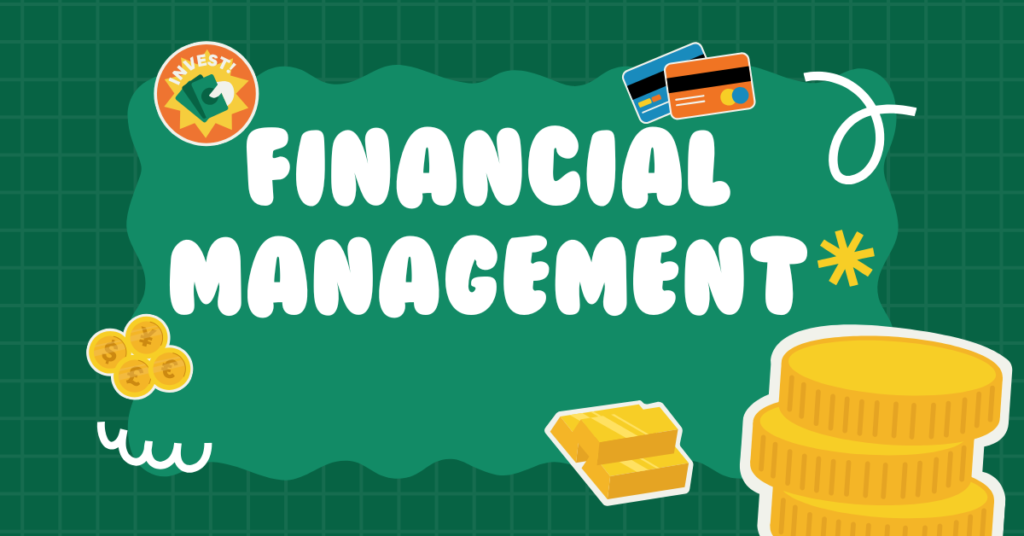
Table of Contents
ToggleIntroduction to Fintech
Fintech, financial technology का short form है।
Financial Technology को सामान्य रुप से ‘‘Fintech’’ के नाम से जाना जाता है।
Fintech, financial industry में क्रांति लेकर आया है।
यह mobile payments, digital banking, blockchain technology और artificial intelligence के माध्यम से व्यक्तियों के जीवन और व्यापार के क्षेत्रों में धन के प्रबंधन को लगातार और तेजी से बदल रहा है।
Definition of Fintech
Fintech, वित्तीय सेवाओं में technology का एकीकरण है।
यह वित्तीय सेवाओं में efficiency, accessibility और security में सुधार करता है।
उदाहरण के लिए- Digital Payments, Online और Mobile Banking.
Fintech से सम्बंधित क्षेत्र की कम्पनियों को fintech companies कहा जाता है।
इन कम्पनियों का लक्ष्य लेनदेन को अधिक आसान, तेज और अधिक प्रभावी बनाना होता है।
Evolution and Growth of Fintech
Fintech समय के साथ विकसित हुआ है।
इसका विकास technological advancements के कारण संभव हो पाया है।
साथ ही इसके विकास में ग्राहको की आवश्यकता और मांग ने भी महत्वपूर्ण भूमिका निभाई है।
Fintech के विकास को निम्न कालखण्डो में विभाजित किया जा सकता है-
1. Early Developments (1950s–1990s)
इस काल में Credit Cards और ATMs की शुरुआत ने banking से सम्बंधित कार्यो को अधिक सुविधाजनक बना दिया।
Electronic Trading और Online Banking की शुरुआत 1980-1990 के समय हुई, जिसने वित्तीय सेवाओं को digital बनाने का मार्ग स्पष्ट किया।
2. Internet & E-commerce Boom (2000s)
इस काल में online banking मुख्यधारा बनकर उभरी।
PayPal जैसी digital payment services उपलब्ध कराने वाली कम्पनी ने लोकप्रियता हासिल की।
साथ ही e-commerce के विकास ने secure online transactions की मांग को जन्म दिया।
3. Rise of Mobile & Fintech Startups (2010s–Present)
इस काल में smartphone revolution ने banking apps, digital wallets और payment services को जन्म दिया।
साथ ही इस काल में peer-to-peer lending और crowdfunding platforms ने पूंजी तक पहुंच का विस्तार किया।
4. Current Trends & Future Growth (2020s & Beyond)
यह fintech का आधुनिक काल है।
इस काल में banks और fintech कम्पनियां API Integration के माध्यम से collaborate कर रही है।
इस समय fraud detection, customer service और automated trading में artificial intelligence का उपयोग किया जा रहा है।
Importance of Fintech in the Modern Economy
Fintech लगातार financial landscape को नया आकार दे रहा है।
यह global economy में महत्वपूर्ण भूमिका निभा रहा है।
इसका प्रभाव कई क्षेत्रों में देखा जा सकता है।
1. Financial Inclusion
Fintech ऐसे लोगो को banking सेवाएं प्रदान करने में योगदान दे रहा है, जो banking सेवाओं से वंचित थे।
साथ ही mobile wallets, पारंपरिक बैंक खातों के बिना लोगो को financial services का उपयोग करने में योगदान करते है।
2. Efficiency and Cost Reduction
वित्तीय प्रक्रियाओं को स्वचालित करने से बैंकों और ग्राहको की लागत कम हो जाती है और उनके समय की बचत होती है।
इससे transactions तेज होते है।
3. Innovation and Competition
Fintech startups, पारंपरिक बैंकों को से अधिक सुविधाएं और सेवाएं कम शुल्क में उपलब्ध कराते है।
4. Investment and Wealth Management
AI के द्वारा संचालित robo-advisors, कम लागत वाले निवेश के समाधान उपलब्ध कराते है।
साथ ही digital trading platforms, सामान्य लोगो के लिए निवेश को अधिक आसान और सुविधाजनक बनाते है।
5. Global Financial Connectivity
Blockchain पर आधारित भूगतान तेज और सस्ते होते जा रहे है।
Decentralized finance (DeFi) बैंकों पर निर्भर हुए बिना financial services प्रदान कर रहे है।
6. Cybersecurity and Fraud Prevention
AI और machine learning, धोखाधड़ी का पता लगाने में सहायता करते है।
साथ ही biometric authentication (जैसे- facial recognition, fingerprint scanning) सुरक्षा को बढ़ाते है।
Key Components of Fintech
Fintech एक व्यापक और फैला हुआ क्षेत्र है, जिसमें कई घटक (components) शामिल है। ये घटक लगातार financial services को बदल रहे है।
साथ ही ये घटक दक्षता और सुरक्षा को बेहतर बनाने के लिए अत्याधुनिक तकनीक का उपयोग करते है।
Fintech के प्रमुख घटक इस प्रकार से है-
1. Digital Payments
Digital wallets के प्रमुख उदाहरणों में PayPal और Google Pay शामिल है। यह उपयोगकर्ताओं को cashless transactions करने की सुविधा प्रदान करते है।
साथ ही QR codes और UPI (Unified Payments Interface) ने तत्काल लेनदेन को बहुत ही सरल बना दिया है।
2. Mobile Banking
लगभग सभी प्रकार के बैंक money transfers, bill payments और loan applications जैसी सुविधाओं को प्रदान करने के लिए mobile apps विकसित कर रहे है।
Mobile Banking में AI-powered chatbots और biometric security, ग्राहको को अधिक सुविधाएं प्रदान करने और धोखाधड़ी की रोकथाम के लिए उपयोग में लाए जा रहे है।
Digital payments और mobile banking सबसे अधिक अपनाएं जाने वाले fintech solutions में से एक है।
Digital payments और mobile banking ने पैसो को भेजने, प्राप्त करने और उसे प्रबंधित करने के तरीको में क्रांति ला दी है।
3. Robo-Advisors
Wealthfront, Betterment और Robinhood जैसे AI-संचालित platforms कम लागत वाले निवेश के विकल्प प्रदान करते है।
यह व्यक्तिगत निवेश की रणनीतियों से market trends, risk tolerance और user goals का विश्लेषण करते है।
4. AI in Financial Services
AI-driven fraud detection systems, धोखाधड़ी रोकने के लिए लेन-देन से सम्बंधित जानकारी का विश्लेषण करते है।
AI-powered credit scoring, ऋणदाताओं को traditional credit reports के बिना ऋण पात्रता का आकलन करने में सहायता करती है।
साथ ही chatbots और virtual assistants, banking और insurance से सम्बंधित सेवाओं में सुधार करते है।
Robo-advisors और AI-powered fintech solutions, wealth management और fraud detection में महत्वपूर्ण और बड़े बदलाव ला रहे है।
5. Peer-to-Peer (P2P) Lending
LendingClub, Prosper और Upstart जैसे platforms, borrowers (उधारकर्ताओं) को individual investors से जोड़ते हैं।
6. Crowdfunding
Kickstarter, Indiegogo और GoFundMe जैसी websites, startups और individuals को fund की सुविधा देती है।
साथ ही equity crowdfunding platforms जैसे SeedInvest और Crowdcube, निवेशकों को नई कम्पनियों में shares खरीदने की सुविधाएं प्रदान करते है।
P2P lending और crowdfunding platforms, traditional financial intermediaries के बिना व्यक्तियों या व्यवसायों के बीच सीधे financial transactions को सुलभ बनाते है।
7. Insurtech (Insurance Technology)
Insurtech, बीमा से सम्बंधित सेवाओं को बेहतर बनाने के लिए technology का उपयोग करता है।
इसमें बीमा सेवाएं प्रदान करने के लिए व्यक्तिगत जानकारी का विश्लेषण भी किया जाता है।
Lemonade और Root Insurance जैसे startups, उपयोगकर्ताओं को उनकी जरुरत के अनुसार सुविधाएं प्रदान करते है।
8. Regtech (Regulatory Technology)
Regtech, financial institutions को automation और real-time data के विश्लेषण के माध्यम से regulations का अधिक कुशलता से पालन करने में सहायता करता है।
AI और blockchain, anti-money laundering (AML) और Know Your Customer (KYC) से सम्बंधित प्रक्रियाओं को व्यवस्थित करते है।
साथ ही यह manual paperwork को कम करते है।
Machine learning, धोखाधड़ी को रोकने के लिए real-time में संदिग्ध गतिविधियों का पता लगाती है।
Automated alerts, बैंको को संभावित जोखिमों का तुरंत जवाब देते में सहायता करते है।
How Fintech is Transforming Financial Services
Fintech, banking, payments, lending और investments को अधिक सुलभ बना रहा है और उन्हें नया रुप दे रहा है।
यह digital innovation, automation और AI-driven solutions के माध्यम से दुनिया भर की financial services में बड़े बदलाव ला रहा है।
इन बदलावों को निम्न प्रकार से समझा जा सकता है-
1. Disrupting Traditional Banking
Fintech, तेज और सस्ते विकल्प प्रदान करके पारंपरिक banking model को चुनौती दे रहा है।
- Rise of Digital-Only Banks (Neobanks)
Chime, Revolut और N26 जैसे startups, बिना किसी physical branches के कार्य करते है।
यह ग्राहको को कम शुल्क और तेज लेन-देन जैसी सुविधाएं प्रदान करते है।
Digital banks, तुरंत खाता खोलने जैसे कार्यो को जल्दी पूरा करते है।
- Embedded Finance & Banking-as-a-Service (BaaS)
Tech कम्पनियां जैसे Apple, Google और Amazon अपने platforms में banking और payment services प्रदान कर रही है।
बहुत से व्यवसाय किसी बैंक के बिना financial products (जैसे- loans, payment solutions) प्रदान कर रहे है।
- Decentralized Finance (DeFi) & Blockchain
DeFi platforms (जैसे- Aave, Uniswap, Compound), उपयोगकर्ताओं को बैंकों के बिना लेन-देन की सुविधा प्रदान कर रहे है।
2. Enhancing Financial Inclusion
Fintech ऐसे लोगो की सहायता कर रहा है, जिनके पास बैंक खाते नही है।
- Mobile Payments and Digital Wallets
M-Pesa (Africa), Paytm (India) और Alipay (China) सिर्फ mobile phone का उपयोग करके लेन-देन की सुविधाएं प्रदान करते है।
Digital wallets बैंक शाखाओं की जरुरत को खत्म कर रहे है, इनके कारण लेन-देन भी आसान होता जा रहा है।
- Microloans and Alternative Credit Scoring
Fintech platforms जैसे Kiva और Tala, पारंपरिक credit history के बिना व्यक्तियों और छोटे व्यापारियों को microloans देने के लिए AI-based credit scoring का उपयोग करते है।
- Blockchain for Cross-Border Payments
Stablecoins और blockchain-powered remittances, migrant workers को कम शुल्क लेकर पैसे भेजने में सहायता करते है।
Ripple और Stellar जैसे platforms, तत्काल और कम लागत वाली international money transfers की सुविधाएं प्रदान करते है।
3. Reducing Transaction Costs and Increasing Efficiency
Traditional financial transactions को सफलतापूर्वक पूरा करने के लिए अधिक शुल्क देना पड़ता था और इसे पूरा करने की प्रक्रिया भी लंबी होती थी।
Fintech automation और digital solutions ने पारंपरिक वित्तीय लेन-देन की इन कमियों को दूर किया है।
- Digital Payments & Contactless Transactions
QR code payments, NFC (Near Field Communication) और real-time bank transfers ने transactions को instant और secure बना दिया है।
Stripe, Square और Adyen जैसे fintech solutions, व्यवसायों के लिए cost-effective payment प्रक्रिया प्रदान करते है।
- AI-Powered Process Automation
Chatbots और AI-driven customer service, human agents की आवश्यकता को कम करते है, जिससे operational cost कम होती है।
- Blockchain for Transparent Transactions
Smart contracts, समझौतों को स्वचालित करते है, जिससे कानूनी और प्रशासनिक लागत कम होती है।
Blockchain, भूगतान में बिचौलियों को खत्म करता है, जिससे banking fees कम होती है।
4. Enabling Real-time Data and Analytics
Fintech, real-time financial insights, fraud detection और personalized services प्रदान करने के लिए big data और artificial intelligence का उपयोग करता है।
- AI-Powered Fraud Detection & Cybersecurity
AI, धोखाधड़ी की गतिविधियों का पता लगाने और उन्हें रोकने के लिए real time में transaction patterns का विश्लेषण करता है।
Machine learning, financial institutions के लिए जोखिम मूल्यांकन में सुधार करती है।
- Personalized Financial Management
Mint, YNAB और Cleo जैसे apps, उपयोगकर्ताओं को budget बनाने और बचत करने में सहायता करते है।
Robo-advisors, market trends के आधार पर real-time investment recommendations प्रदान करते है।
- Open Banking & API Integration
Open banking, third-party fintech कम्पनियों को API के माध्यम से banking data तक पहुंचने की अनुमति देती है।
साथ ही इसमें उपयोगकर्ता multiple financial accounts को link कर सकते है।
Emerging Trends in Fintech
Fintech लगातार विकसित हो रहा है।
यह rapid technological advancements, changing consumer expectations और regulatory developments से प्रेरित है।
बहुत से emerging trends, भविष्य को आकार दे रहे है और वैश्विक स्तर पर वित्तीय सेवाओं को बदल रहे है, जो इस प्रकार से है-
1. Decentralized Finance (DeFi)
DeFi एक उभरता हुआ financial system है।
यह traditional banks और intermediaries के बिना financial services प्रदान करने के लिए blockchain technology का लाभ उठाता है।
Key Features of DeFi
- Smart Contracts, blockchain पर self-executing contracts है जो transactions को स्वचालित करते है। (जैसे- Ethereum, Solana)
- Aave और Compound जैसी सेवाएं, उपयोगकर्ताओं को बैंक के बिना संपत्ति उधार देने और उधार लेने में सक्षम बनाती है।
2. Artificial Intelligence (AI) and Machine Learning in Finance
AI और machine learning, efficiency, security और customer experiences में सुधार करके financial decision-making में क्रांति ला रहे है।
AI Applications in Fintech
- AI, suspicious transactions का पता लगाता है और real time में धोखाधड़ी को रोकता है।
- AI, spending habits और social behavior के आधार पर उपयोगकर्ताओं के व्यवहार का आकलन करता है।
3. Embedded Finance and Banking-as-a-Service (BaaS)
Embedded finance और BaaS, non-financial companies को अपने platforms के भीतर banking, lending और payment services प्रदान करने की अनुमति देते है।
- What is Embedded Finance?
Financial services को सीधे non-financial platforms जैसे Uber’s in-app payments, Shopify’s merchant lending में integrated किया जाता है।
उपभोक्ता पारंपरिक बैंक में जाए बिना ऋण, बीमा या निवेश तक पहुँच सकते हैं।
- What is Banking-as-a-Service (BaaS)?
BaaS, third-party कम्पनियों को बैंकों द्वारा प्रदान की गई API का उपयोग करके बैंकिंग सेवाएँ प्रदान करने की अनुमति देता है।
4. Open Banking and API Integration
Open banking, banks और third-party fintech companies के बीच secure data sharing को संभव बनाती है।
इससे innovative financial products और services के उपयोग की सुविधा मिलती है।
How Open Banking Works
- Banks, APIs (Application Programming Interfaces) के माध्यम से ग्राहक के financial data तक पहुंच प्रदान करते है।
- उपभोक्ता एक ही app में multiple financial accounts को connect कर सकता है।
5. Cybersecurity and Fraud Prevention
Fintech services, sensitive financial data को संभालती है, इसलिए cybersecurity threats और fraud prevention गंभीर चिंताएं है।
Cybersecurity Trends in Fintech
- Banks, secure logins के लिए facial recognition, fingerprint scanning और voice ID का उपयोग करते है।
- AI और Machine Learning, धोखाधड़ी का पता लगाने के लिए संदिग्ध लेनदेन का पता लगाती है और साइबर हमलों को रोकती है।
- Fintech firms सिर्फ passwords पर निर्भर रहने के बजाय continuous verification को अपनाते है।
Challenges and Risks in Fintech
तेजी से हुए विकास और कई प्रकार की सुविधाएं देने के बाद भी fintech industry को कई चुनौतियों और जोखिमों का सामना करना पड़ रहा है।
इन चुनौतियों और जोखिमों में regulatory hurdles और data security concerns शामिल है।
साथ ही इनमें आर्थिक अस्थिरता और पारंपरिक financial institutions से प्रतिस्पर्धा का होना भी शामिल हैं।
इसलिए fintech ecosystem के सतत विकास के लिए इन चुनौतियों और जोखिमों का समाधान करना आवश्यक है।
1. Regulatory and Compliance Issues
Fintech कम्पनियों को अलग-अलग देशों के जटिल और बदलते नियमों का सामना करना पड़ता है, जिससे नवाचार और विस्तार की गति धीमी हो जाती है।
- Lack of Global Standardization
प्रत्येक देश में अलग-अलग प्रकार की financial regulations है, जिससे fintech कंपनियों के लिए अंतरराष्ट्रीय स्तर पर विस्तार करना मुश्किल हो जाता है।
- Stricter Compliance Requirements
Payments, lending और digital banking से सम्बंधित fintech कंपनियों को anti-money laundering (AML) और know-your-customer (KYC) से सम्बंधित regulations का पालन करना होता है।
इन regulations का पालन ना करने पर भारी जुर्माना देना होता है, जिससे कम्पनी की प्रतिष्ठा को नुकसान हो सकता है।
- Regulatory Uncertainty in Emerging Technologies
DeFi और cryptocurrencies इस समय unclear regulations का सामना कर रहे है। इसके कारण निवेशकों और कम्पनियों के लिए कई प्रकार के कानूनी जोखिम उत्पन्न हो रहे है।
2. Data Privacy and Security Concerns
Fintech platforms, ग्राहको के sensitive financial data को संभालते है, इसलिए इनके लिए data की privacy और security सुनिश्चित करना एक बड़ी चुनौती है।
- Cybersecurity Threats
Hacking, phishing attacks और ransomware बड़ी मात्रा में valuable financial data के कारण fintech platforms को निशाना बनाते है।
DeFi platforms और crypto wallets कई बार hacks और scams के निशाने पर होते है।
- Data Privacy Regulations
सरकारे strict data protection laws लागू करती है।
इस कारण कम्पनियों को legal penalties से बचने के लिए secure data storage सुनिश्चित करना होता है।
- Risks of Open Banking & API Integration
Open banking, financial innovation को बेहतर बनाती है, लेकिन अगर APIs को ठीक से सुरक्षित नहीं किया जाता है, तो इससे साइबर खतरों का जोखिम भी बढ़ जाता है।
उपयोगकर्ताओं के banking data तक third-party की पहुंच से data के misuse या leaks का खतरा बढ़ जाता है।
3. Market Volatility and Economic Uncertainty
Fintech कम्पनियां, economic conditions, interest rates और market fluctuations से अत्यधिक प्रभावित होती हैं।
- Cryptocurrency and Stock Market Volatility
Crypto assets और digital trading से निपटने वाले fintech platforms, high volatility और regulatory risks का सामना करते हैं।
Crypto crashes, unregulated financial products के जोखिमों को उजागर करते हैं।
- Global Recession and Funding Challenges
आर्थिक मंदी के कारण fintech startups के लिए venture capital (VC) funding में कमी आती है।
ब्याज दरों में वृद्धि से fintech lenders और consumers के लिए उधार लेने की लागत बढ़ सकती है।
- Inflation and Consumer Spending Behavior
High inflation, उपभोक्ताओं की purchasing power को कम करती है, जिससे digital payments और lending platforms प्रभावित होते है।
लेन-देन आधारित revenue पर निर्भर fintechs को अपने revenue में गिरावट का सामना करना पड़ सकता है।
4. Competition with Traditional Financial Institutions
Traditional banks और financial institutions अपने स्वयं के digital solutions की शुरुआत करके fintech का सामना कर रहे है।
- Banks Adopting Digital Transformation
बहुत से बैंक अपनी स्वयं की fintech जैसी सेवाएं विकसित कर रहे है, जिनमें शामिल हैं-
Digital wallets और contactless payments, AI-driven banking assistants, Blockchain-based settlement systems.
- Fintech Startups vs. Big Tech Companies
बड़ी कम्पनियां fintech के क्षेत्र में प्रवेश कर रही है, जिससे इस क्षेत्र में प्रतिस्पर्धा बढ़ती जा रही है।
- Customer Trust and Brand Recognition
Traditional banks पर दशकों की विश्वसनीयता के कारण ग्राहकों का भरोसा मजबूत है।
Fintech firms को lending, insurance और wealth management जैसे क्षेत्रों में ग्राहको का भरोसा हासिल करने के लिए कड़ी मेहनत करनी चाहिए।
Fintech and Global Impact
Fintech, financial inclusion को बढ़ा रहा है।
यह सीमा पर लेन-देन में सुधार कर रहा है।
साथ ही यह sustainable finance initiatives को आगे बढ़ाकर global financial landscape को बदल रहा है।
इसका प्रभाव सभी देशों पर हो रहा है।
1. Role of Fintech in Developing Economies
Fintech, विकासशील देशों में financial gap को कम करने में महत्वपूर्ण भूमिका निभा रहा है।
- Financial Inclusion through Mobile Banking
विकासशील देशों में बहुत से लोगो की बैंकों तक पहुंच नही है, इन देशों में fintech services एक अच्छे विकल्प के रुप में उभर रही है।
- Microfinance and Digital Lending
Fintech-powered microloans छोटे व्यापारियों को उनकी credit history के बिना funding तक पहुंचने में सहायता कर रहे हैं।
- Digital Payments and E-Commerce Growth
Fintech, cashless transactions की सुविधा देता है, इसके कारण छोटे व्यापारियों के लिए अपना उत्पाद बेचना आसान हो जाता है।
2. Cross-Border Payments and Remittances
International money transfers पारंपरिक रुप से महंगा और धीमा रहा है।
Fintech इस क्षेत्र में क्रांति ला रहा है।
- Reducing Remittance Costs
Traditional remittance services दूसरे देशों में पैसा भेजने के लिए अधिक शुल्क लेती है।
Wise (formerly TransferWise), PayPal और Revolut जैसी कम्पनियां सस्ते और तेज विकल्प प्रदान करती है।
- Real-Time Settlement and Instant Payments
Fintech firms लेन-देन में तेजी लाने के लिए real-time payment networks का उपयोग करती है।
3. Sustainable Finance and ESG (Environmental, Social, and Governance)
Fintech, green finance, ethical investing और social impact-driven financial services को बढ़ावा दे रहा है।
- Green Fintech and Sustainable Investing
Fintech platforms, ESG investment options प्रदान करते है।
- Digital Carbon Credit Trading
Blockchain-based carbon credit platforms कम्पनियों को पारदर्शी तरीके से carbon offsets खरीदने और बेचने की अनुमति देते है।
- Fintech’s Role in Social Impact Finance
GoFundMe और Kiva जैसे platforms सामाजिक परियोजनाओं को सफल बनाने में अपना योगदान देते है।
Fintech firms छोटे व्यापारियों को पूंजी प्रदान करते है।
Future of Fintech
Fintech industry, technological advancements और strategic collaborations के कारण तेजी से विकसित हो रही है।
इसके विकास को देखते हुए यह भी कहा जा सकता है कि यह उपभोक्ताओं की मांग और आवश्यकता के अनुसार भी विकसित हो रहा है।
इसके भविष्य में new innovations और partnerships with traditional banks को शामिल किया जा सकता है।
साथ ही यह भी कहा जा सकता है कि आने वाले सालों में हमें इस क्षेत्र में बहुत सारे बदलाव देखने को मिल सकते है।
1. Potential Innovations and Disruptions
कई उभरती हुई technologies, fintech को एक नया आकार देगी।
साथ ही यह new financial products, services और business models की आवश्यकताओं को पूरा करेगी।
- AI and Machine Learning in Finance
AI-driven banking assistants और robo-advisors निवेश के नए तरीको को और वित्तीय योजना को प्रदान करेंगे।
AI, धोखाधड़ी निगरानी और जोखिम मूल्यांकन में सुधार करेगा।
- Decentralized Finance (DeFi) and Smart Contracts
DeFi platforms, उपयोगकर्ताओं को blockchain-based smart contracts का उपयोग करके वित्तीय सेवाओं तक पहुँचने की अनुमति देता है।
Decentralized Finance (DeFi) और Smart Contracts के कारण automated lending, borrowing और insurance अधिक सुलभ हो जाएगा।
- Quantum Computing in Financial Services
Quantum computing, financial modeling, fraud detection और encryption में क्रांतिकारी बदलाव ला सकती है।
Faster risk analysis, निवेश की रणनीतियों में सुधार करेगा।
साथ ही यह hacking threats के खिलाफ cybersecurity को बढ़ाएगा।
2. Collaboration Between Fintech Startups and Traditional Banks
प्रतिस्पर्धा करने के बजाय, banks और fintech startups एक-दूसरे की ताकत का लाभ उठाने के लिए तेजी से सहयोग कर रहे हैं।
- Banks Adopting Fintech Innovations
Traditional banks अपने सिस्टम में AI और blockchain का उपयोग कर रहे है।
साथ ही यह digital payments की सभी सुविधाओं को प्रदान करने का प्रयास कर रहे है।
- Banking-as-a-Service (BaaS) and Embedded Finance
Banks, fintech startups को अपना infrastructure (APIs) प्रदान करते है। इस कारण वह financial services को उपलब्ध करा पाते है।
- Mergers, Acquisitions, and Partnerships
Big banks और fintech firms, acquisitions या strategic alliances के माध्यम से एक साथ आ रहे हैं।
Conclusion
Fintech ने financial services को अधिक accessible, efficient और innovative बना दिया है।
Fintech ने financial industry में क्रांति ला दी है।
Digital payments और blockchain से लेकर AI-driven financial services और decentralized finance (DeFi) तक यह धन प्रबंधन के तरीको को नया रुप दे रहा है।
यह जैसे-जैसे विकास करता जाएगा, नए अवसर और नई चुनौतियां साथ आएगी। इसके लिए fintech कम्पनियों को बाज़ार के अनुकूल बने रहने, उपभोक्ताओं की मांग को ध्यान में रखने और नए रास्ते अपनाने पर ध्यान देना होगा।
4 Main/Basic Types of Money: पांचवा अभी अस्तित्व में आया है





